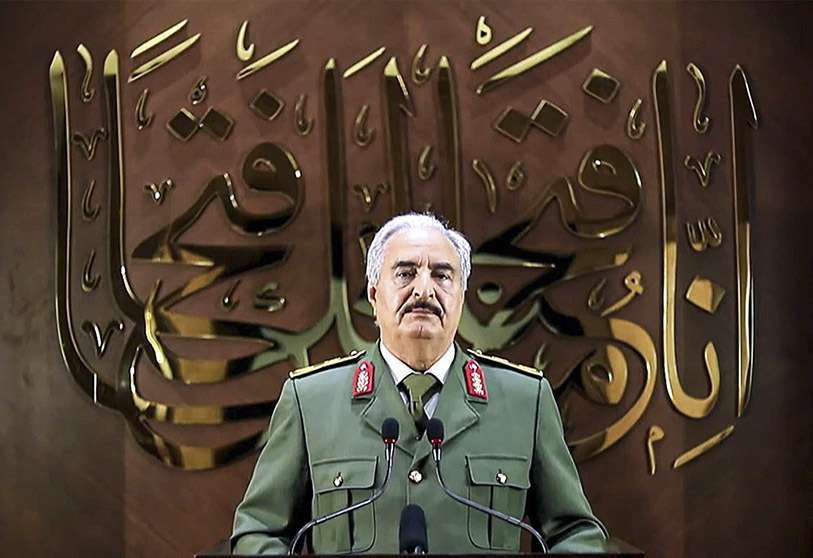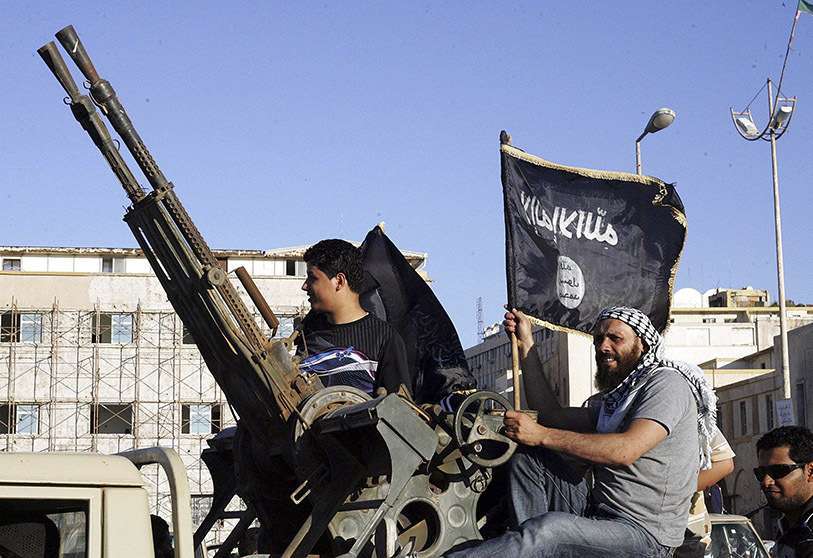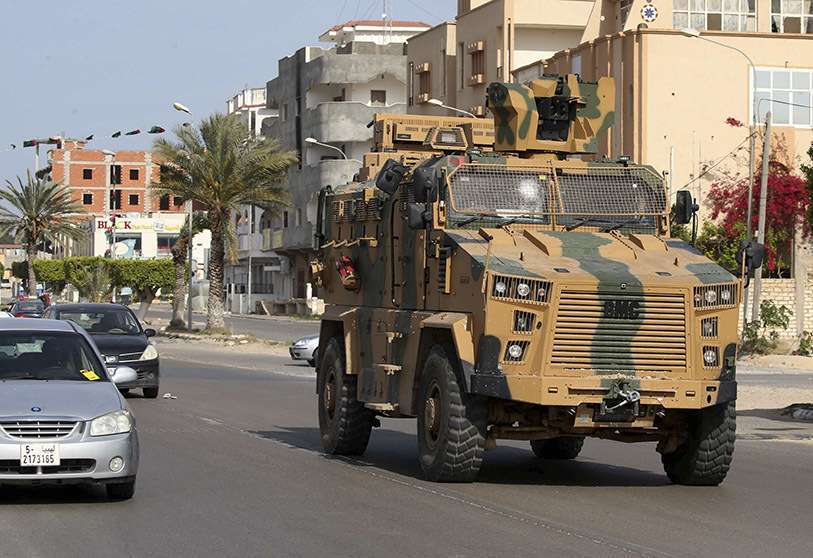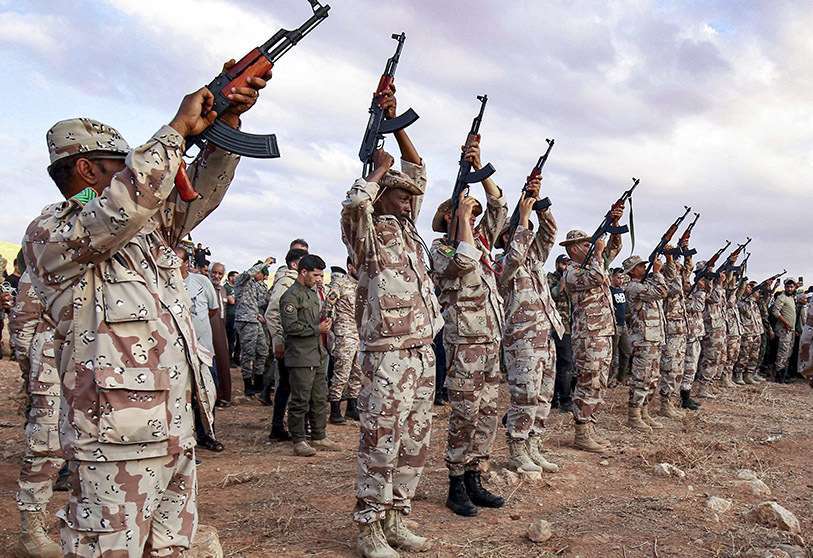Libya: new political scenario, same open wounds

Libya holds its breath. After more than six years of civil war between the Government of National Accord led by Fayez al-Sarraj and Marshal Haftar's forces, the UN-backed Libyan Political Dialogue Forum (LDPF) has succeeded in electing a transitional government tasked with leading Libya to elections scheduled for 24 December.
Businessman Abdul Hamid Mohamed Dbeiba and former ambassador to Greece, Mohamed Menfi, have been elected respectively as Libya's prime minister and chairman of the Presidential Council in the new transitional government until future elections are held. This executive change has been marked by a climate of tension in which suspicions have been raised about Dbeiba's links to various cases of corruption and bribery. Similarly, the current president has been criticised for the lack of transparency in some ministries, as well as for not respecting the women's quota mandated by the FDLP.

This outcome has been welcomed by the Arab League and the Gulf Cooperation Council. The United Nations Secretary General, António Guterres, has expressed his "satisfaction" with the "promises" of the new leaders of the transitional government, considering it a step forward towards harmony.
This development could be seen as a first step towards peace since the overthrow of Gaddafi's dictatorship. Following the end of the regime, the political and social climate in Libya has been characterised by division, conflict and instability. In this context, Libya has seen the outbreak of two civil wars that have claimed the lives of around 10,000 people. To these numbers must be added the figures of approximately 50,000 wounded and 4,000 missing.
The civil wars fought on Libyan soil have been marked by corruption, war crimes and organised crime, with human trafficking being one of the main criminal activities. In this scenario, organised crime has been strongly shaken by the actions of militias with impunity.

A European military analyst stationed in Tripoli explained to Efe that "the militias are the main problem today not only because in the absence of police and army they are necessary for any government. They are also necessary because they boost an economy based on war and smuggling. Weapons and oil are the only resources of a country that produces nothing and imports practically everything".
During the outbreak of the second civil war, the confrontation between the two warring parties led by Al-Sarraj and Haftar, the former supported by Turkey and Qatar and the latter supported by Russian allies Saudi Arabia, the United Arab Emirates and Egypt, has been joined by the threat of Daesh taking over Sirte in 2014. In 2016, with Libyan fighters supported by the Government of National Accord, Daesh's situation in the country changed. After the retaking of Sirte, the terrorists have had to disperse across the country, taking refuge in desert areas or posing as civilians. Among the latest operations, a few days ago the self-styled Libyan National Army announced the arrest of one of Daesh's most important leaders in the city of Ubari, in the southwest of Libya.

Another decisive role in the development of the conflict has been played by the intervention of foreign powers on the part of Turkey and Russia. Erdogan's government prevented Haftar's advance by sending soldiers and thousands of Syrian mercenaries recruited from among Sunni Islamist groups, mercenaries who have been able to maintain military training with Daesh.
A military officer stationed in Libya assured Efe that "mercenaries have an economic and military value. As well as being cheaper, they allow us to intervene and maintain influence without the high political cost and the cost of assuming responsibility if they commit excesses that accompany regular forces". On the other hand, he asserted that "neither Turkey nor Russia has any interest in withdrawing them".

In this way, Turkey continues to be in the spotlight for its alleged relations with Daesh terrorists. Various media have confirmed the links between Turkey and paid mercenaries who could have been part of terrorist organisations such as Daesh or Al-Qaeda, terrorists that it would use for its own benefit in the wars in Libya, but also in Syria. This strategy would be focused on achieving its objective of geostrategic positioning in the Mediterranean and the Middle East in order to profit from the exploitation of areas rich in gas and oil. Following parliamentary authorisation, Turkish troops will remain in Libya for another 18 months.
Since the signing of the agreement between the warring factions on a 'permanent ceasefire in all areas of Libya', the new climate has been marked by a severe crisis of migrants and refugees trapped in chaos.

Today, Turkey, a state that did not intervene in the early days of the revolution, is 10 years later one of the main actors in a war that began as a civil war and has turned into a multinational conflict. Alongside this, smuggling of people, fuel and motor goods have become the main products of the national economy that have plunged Libya further into chaos.
The new transitional government is intended to be a limbo of containment between the parties in order to move closer to achieving peace. However, the actions of multiple state and non-state actors, the poverty of the population and the interests of foreign powers make the conflict more complicated and protracted, making it more difficult to turn Libya from a failed state to a peaceful one.










